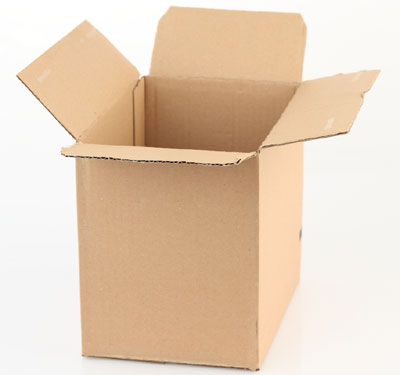You don’t move in every day, so there are sure to be some basic moving rules that will slip your mind at the very moment when they would have come in handy. Contrary to what you may believe, the packing-unpacking procedure is closer to science. So get down to it minding half-a-dozen pieces of advice that will help to maintain both your belongings and peace in the family.
 Mistake One: skipping the discussion
Mistake One: skipping the discussion
When two people decide to move in together it can be a more important occasion than arranging a wedding – at least more than a half of Americans think so, as revealed in a recent survey. About the third of couples (even more millennials – they showed up to 46%) admit they had their bitterest quarrels as they were moving in.
So, the happening had better be strategized as well as you can. And the first move in the game will be – sit down and talk it over. Go through your hobbies and preferred activities together – it will help you understand how you are going to allocate rooms and space in your place. Think about how you will best use the rooms for doing everything you mean to do. Then, you will have to consider how much space your and your partner’s stuff is going to require (that is certain to save you a couple of arguments on the spot!).
Mistake Two: neglecting the calculations
As people start packing in the place they are now, they may be disregarding the conditions they will find themselves in after they have moved. What if your place-to-be is smaller, have no convenient closets or fewer rooms? Will your furniture look all right in the new rooms? Will all your boxes come in easily in the first place? The best idea is to know beforehand where exactly your boxes and things go when you arrive at the place. Why not measure the rooms and draw up a blueprint to be sure you have enough room? It would be even better if you also measured the closets, the drawers, the shelf space, taking into account the position of the windows and the doors. Then you’ll know within a foot or two how much, say, hanging space you have compared to your old apartment. Consequently, you take along the volume of your belongings that fit into your new place and avoid cluttering the apartment straight away.

Mistake Three: giving yourselves enough time to get ready
If you think that a couple of weeks will see you packing nicely, think again. Give yourselves ample time to get everything ready without undue hurry – like two, three months, so you can look into every nook and take things out of drawers and places. Moving in is a perfect time for discarding things you wear no longer or never used at all. Get rid of unnecessary items, and you can be dead sure you have avoided an argument or three.
Experts say that a move helps people cast away about a half of their belongings that they don’t really need. Think how much time and packing tape you will save through not getting busy with what burdens your life. You will do fine if you allow a special box for castaway items right from the start so you will do your selection in an orderly fashion. See what you can donate.
Mistake Four: packing by the room
The idea of packing up one room after another is widely known, but then again, it can do with some improvement. To make your move smoother and less stressful, keep in mind that you have to think in terms of your new apartment. Before you start stuffing all the items from one room in particular boxes, make sure that when you will be unpacking, the contents of these boxes will go to one room too.

Also, it will be useful to categorize your items. Put plates, T-shirts, jackets, etc., together so that you can see at a glance how many of these things you have. If you don’t need all of them, sort through them and see what you can reject. After you have moved, you will find such an arrangement makes it easier to unpack.
Mistake Five: misleading labeling
As you label the boxes “playroom” or “main bedroom” upon arrival you may discover that these definitions are not quite as clear as you thought. And what if you decide upon a different purpose for your new rooms at the last moment? For the time being it will be definitely easier if you give each room a number and thereby avoid misplacements. Give numbers to closets and cupboards as well, and your boxes will be placed right obviating the need to shift them around afterward. You can’t get wrong with your boxes labeled “Room 3 closet 2.”
Mistake Six: not caring properly for fragile items
Most people are worried lest their more fragile belongings get broken on the way. Of course, if you move with the hired help, you can’t very well control all the handling. Nevertheless, there are ways to diminish the breakage risk before you things start to get moved.
Don’t make your boxes too heavy. You may believe buying the largest boxes available will render your move simpler, but as the boxes get packed they may become overstuffed and foil the carrier. You won’t want your things to be dropped or smashed against corners. Go for smaller boxes which you are sure can be carried with more ease. Even when your heavy boxes are safely in, you may drop them when moving them about your new place.
Try liquor boxes. Your nearest bottle store can supply you with good sturdy boxes – they are meant to contain a dozen bottles so they should be pretty strong. Besides, they will come cheaper than new boxes from the store, or they can even let you have a few for free.

Bubble wraps are not the best for their purpose. Butcher’s paper is better. You don’t need as much of it as of bubble wraps, and it doesn’t take up so much box room.
Blue painter’s tape will serve you well to mark boxes with breakables. If you just write “handle with care” it might not be noticed in good time in the ensuing hustle. But if you inform movers that boxes with two strips of blue tape should be handled carefully, they won’t have to stoop to read any written instructions. Stick on a strip of the tape in the shape of an arrow to show which side should be up. Such markers are better at helping prevent moving mistakes.










